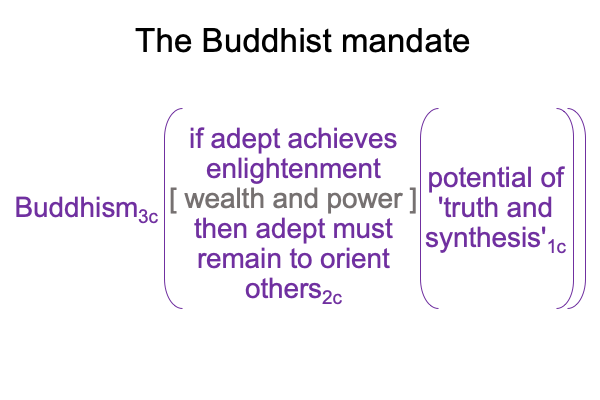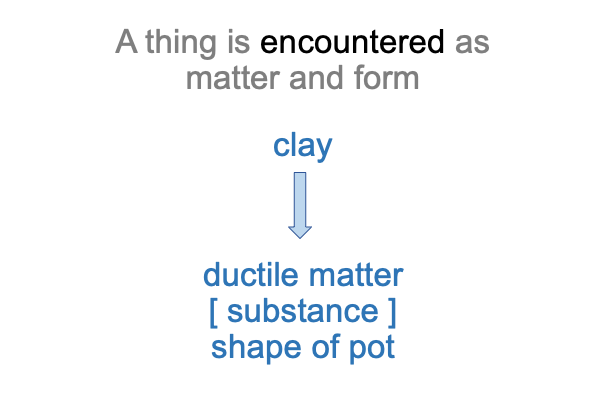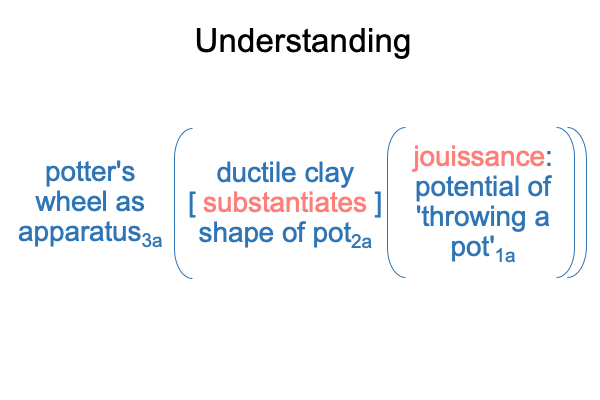0151 So, why is Lacan not a Buddhist?
Well, there is more to objet a2c and [petit objet a]2c than illusion.
If Buddhist enlightenment is all about transcending ontological realness, then the adept who attains enlightenment should just wither away from lack of jouissance. If that happens, then all the insight that the adept has acquired (like capital!) cannot pour (like [wealth and power]) into exercises that train other adepts within Buddhist institutions (like social!).
0152 Zizek points out that Buddhism’s own mandate acknowledges that overcoming illusion is not all there is.
What is the Buddhist mandate for the adept who achieves enlightenment?
The adept must remain in order to guide others.
Here is a picture.

0153 From my brief foray into the topic of the Lebenswelt that we evolved in, I know what an evolutionary anthropologist would label this [petit objet a]2c. The label is “altruism”.
[Altruism] is [wealth and power].
Yes, [altruism] is the contiguity within the actuality2c of the Buddhist mandate.
But, these labels are explicit abstractions that belong to our current Lebenswelt.
0154 So, let me review.
There is a difference between an thing encountered and a thing understood.
0155 The first step in going from encounter to understanding is to regard the thing as an example of Peirce’s category of secondness. So, when I encounter some good clay, I recognize that it is suitable for making a pot. Both the clay and the pot constitute – what Lacan calls – an objet a. The [substance] is petit objet a. Petit objet a says, “Hey, this it the hylomorphe… er… ‘thing’… that you are looking for.”

0156 The second step on the path to understanding is to conjure a normal context3a and potential1a for the actuality2a. Here, my understanding depends on my familiarity with the potter’s wheel.

